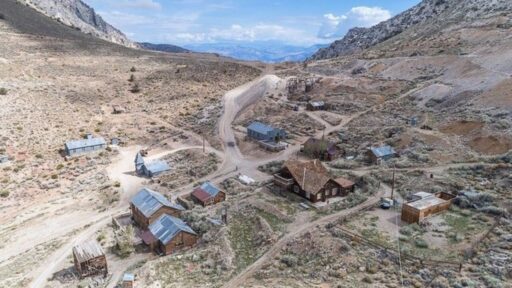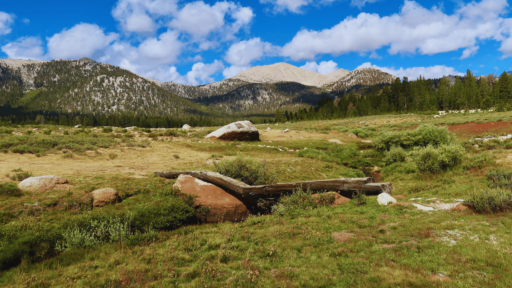Land Acknowledgment: Payahuunadu has been, and continues to be, the homeland of the Paiute (Nuumu), Shoshone (Newe), and Timbisha peoples. This land acknowledgment honors the original inhabitants of the Eastern Sierra and the tribes who remain here today.
Overview
Tucked into the high alpine above Bishop, the Treasure Lakes are a sparkling series of glacial lakes that live up to their name. With turquoise water, dramatic granite walls, and relative solitude compared to other Bishop Basin favorites, this hike is a must-do for anyone chasing Eastern Sierra magic without needing a permit.
Beta
| Trailhead | South Lake Trailhead |
| Route | Treasure Lakes Trail via Bishop Pass Trail |
| Mileage | 7.0 miles round-trip |
| Elevation Start | 9,820 feet |
| Elevation Gain | ~1,600 feet |
| High Point | 11,000+ feet |
| Type | Out and back |
| Difficulty | Moderate |
| Water | Lakes and creeks along the way (filter recommended) |
| Permit | Overnight |
| Pets | Dog-friendly (on leash) |
| Land Manager | Inyo National Forest |
Trail Description
The hike to Treasure Lakes begins at the South Lake Trailhead, a popular jumping-off point for Bishop Pass and beyond. You’ll follow the well-traveled Bishop Pass Trail for about 1.5 miles before breaking off on a clearly marked junction to Treasure Lakes. From there, the trail gets a bit steeper and less trafficked as it climbs into a secluded granite basin.
Expect wildflowers in early summer, crystal-clear alpine water, and plenty of opportunities to relax on warm boulders with a view. The trail can be rocky and uneven in sections, so wear sturdy footwear and be prepared for patches of snow early in the season. Fishing is allowed and often fruitful if you’re packing a rod.
Seasons
July through September are prime time. Earlier in the season, you may encounter snow and high creek crossings. Fall brings stunning golden aspens along the drive but cooler temps at elevation.
Flora & Fauna
You’ll pass through classic subalpine ecosystems: lodgepole pines, wildflower meadows, and granite outcrops. Keep an eye out for marmots, Clark’s nutcrackers, and the occasional deer.
Geology
The Treasure Lakes basin showcases textbook Sierra Nevada granite, with evidence of glacial carving all around. The lakes themselves fill depressions formed by ancient ice movement, giving the water its vivid color.
History
This area has long been traveled by Indigenous people of the Eastern Sierra. The name “Treasure Lakes” is a settler-era addition, likely inspired by the glittering alpine waters. Today, the trail remains less visited than Bishop Pass or Chocolate Lakes, offering a quieter historical and recreational experience.
Know Before You Go
• Afternoon thunderstorms are common in summer. Start early and be off the pass by midday.
• If you hear thunder and see lightning on an exposed trail, your immediate priority is to seek shelter and minimize your exposure to the storm. Get to a safe location, crouch low with your head down, and stay away from tall or conductive objects. If possible, try to find a valley or depression in the terrain.
• Trail can be buggy—bring DEET or netting during peak mosquito season.
Driving Directions
From Bishop, head west on CA-168 (Line Street) toward South Lake. Stay on South Lake Road for about 18 miles until you reach the large parking lot at the South Lake Trailhead.
Parking
Free parking is available at the South Lake Trailhead. It fills up on weekends, so arrive early.
Leave No Trace
Please practice Leave No Trace principles. Pack out all trash, stay on established trails, and never shortcut switchbacks. Respect wildlife and give others space to enjoy the trail.
#packitinpackitout #leaveitbetter #leavenotrace #camplikeapro
AWE Disclaimer: Recreation activities may involve inherent risks, including but not limited to changing weather conditions, challenging terrain, wildlife encounters, and other unforeseen hazards. Visitors should check with local land management agencies or authorities for up-to-date information on trail conditions, access, permits, and regulations before planning their trip. Always prioritize safety by being prepared, carrying adequate supplies, and following Leave No Trace principles to protect the environment. Respect local rules, private property, and other visitors. This post is for informational purposes only, and participation in any activity is at your own risk.






